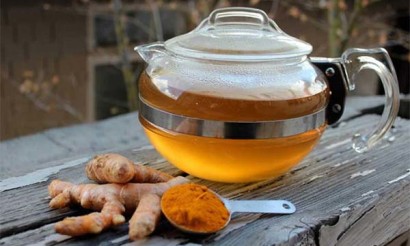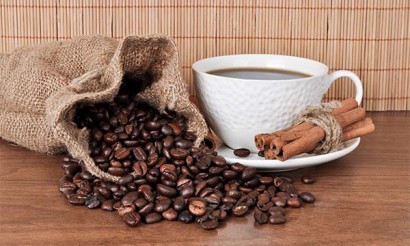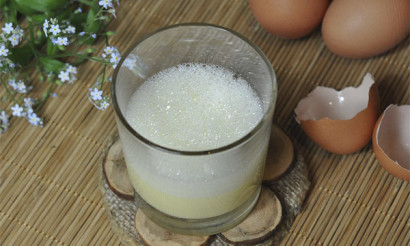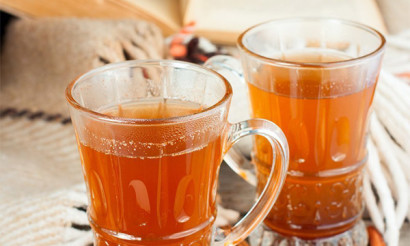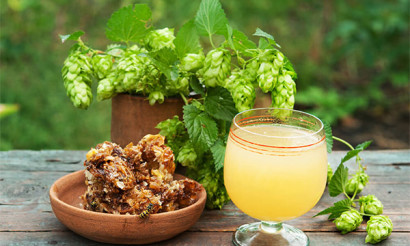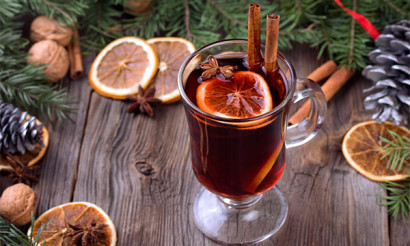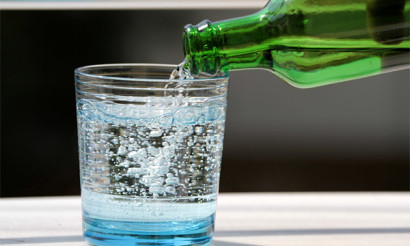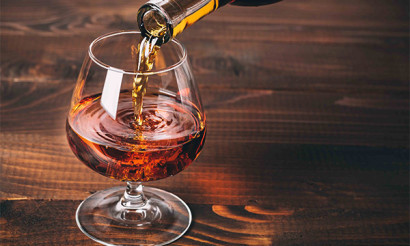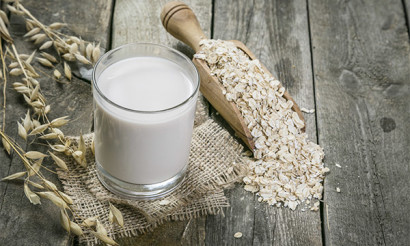Energy drink: health benefits or harm?
Today you can see a lot of beautiful jars with the words "Energy drink" and a list of vitamin additives on the shelves of stores. Are such drinks so useful in fact?
- What is an energy drink
- The principle of action of energy drinks
- Composition and calories
- What are the harms and dangers of energy drinks
- What energy drink is useful for
- For Men
- For Women
- Weight loss
- Can I Drink Energy Drinks During Pregnancy and IV
- Harm of energy drinks for children
- Symptoms of energy drinks overdose
- Anxiety
- Diarrhea and other stomach problems
- Increased thirst
- How to consume energy drinks without harming your health
- How much can I drink per day
- Can I Drink at Night and on an empty stomach
- FAQ
- Can I Drink Energy Drinkers before 18 Years Old
- Can I drink energy drinks before training
- Can I Drink Energy Drinkers Behind the Wheel
- What can replace energy drinks
- Protein
- Cocoa
- Quercetin
- Glutamine
- Carbohydrates
- Magnesium
- Tea
- Easy Sleep
- How to Make an Energy Drink at Home
- Citrus & Coconut Water
- Electrolyte Energy Drink
- Quick recipe for home energy drink
- What happens if coffee is mixed with an energy drink
- Interesting facts about energy drink
What is an energy drink
Energy drinks are drinks that are claimed to increase energy, reduce fatigue, and improve concentration. They usually contain ingredients such as caffeine, sugar, taurine (an amino acid), herbs and vitamins.
How energy drinks work
Energy drinks have the effects of sugar and caffeine, and there is little evidence that a variety of other ingredients have any effect. Energy drinks affect cognitive functions such as reaction speed and increased attention due to the caffeine they contain. It provides various functional benefits by increasing alertness and energy. And it is always associated with ingredients such as caffeine or taurine and glucose.
An energy drink or hydration drink may be a smarter choice in situations where you are already dehydrated. After all, energy is traditionally derived from sugars, usually glucose and sucrose.
Composition and calories
Calorie: 111 Kcal/cup.
Main nutrients:
- Vitamin B6 (430.08%).
- Vitamin B-12 (211.67%)
- Vitamin B3 (158.46%)
- Vitamin B2 (20.46%)
- Carbohydrates (20.30%)
What are the harms and dangers of energy drinks
- Headaches and migraines: too many energy drinks can lead to severe headaches due to caffeine withdrawal syndrome. Changing the amount of caffeine consumed daily can cause more frequent headaches.
- Increased anxiety: People with two different genetic variations of adenosine receptors tend to experience increased anxiety when consuming caffeinated drinks such as energy drinks. Large doses can even provoke full-blown panic attacks.
- Insomnia: Energy drinks help people stay awake, but when abused, they can cause some people to be unable to sleep at all.
How an energy drink is good for you
An energy drink and any that contains high levels of a stimulating ingredient, usually caffeine, as well as sugar (and often supplements such as vitamins or carnitine), is advertised as a product that can increase mental alertness and physical performance.
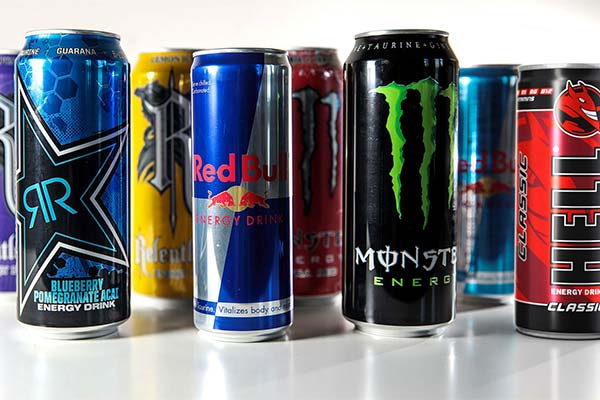
For men.
Energy drinks contain carbohydrates, which is good for those who require stamina and increased fitness levels. Most energy drinks are carbohydrate-based, containing 18 to 25 grams of this substance. They replenish energy reserves for efficient performance, energy, and recovery.
For Women
For women, caffeine intake should be no more than 6 teaspoons per day. In addition to this substance, the energy drink contains other ingredients such as B vitamins, taurine, glycinolactone, and ginseng. These nutrients contribute to its effect.
When losing weight.
Assuming a person consumes enough caffeine to significantly increase their metabolism, it would still take them a month to lose half a pound of fat. Moreover, the level of caffeine in energy drinks only slightly increases the metabolism (less than 100 extra calories burned per day).
Can I Drink Energy Drinks During Pregnancy and Breastfeeding?
Energy drinks are not recommended for consumption during pregnancy and pregnancy with an infant because they may have high levels of caffeine, and other chemical ingredients found in energy drinks.
The dangers of energy drinks for children
Energy drinks are not recommended for children and teens because of the high amounts of caffeine, sugar, and other ingredients (such as herbs and amino acids) they contain.
Caffeine is a drug found naturally in the leaves and seeds of many plants. It is also artificially made and added to certain foods. Caffeine is found in coffee, tea, chocolate, energy drinks, many soft drinks, and some medicines. It can make you feel more alert and give you a temporary energy boost.
Energy drinks can contain anywhere from 50 mg to more than 200 mg of caffeine per can. One such smoothie may contain more caffeine than the maximum safe daily limit for children and teens.
Important. Energy drinks should never be used in place of water for rehydration.
Symptoms of energy drink overdose
With so many energy drinkers out there, you'd think that an overdose of a drink would be nothing unusual. And even though it doesn't happen very often, that doesn't mean that caffeine overdose from drinking energy drinks is a myth.
Here's a list of the most common symptoms of caffeine overdose:
Anxiety
Caffeine, found in energy drinks, is known exclusively for its ability to increase alertness. In particular, it is known to reduce the production of adenosine, a hormone that causes feelings of fatigue and stimulates the production of adrenaline, the "hit or run" hormone. However, when a person begins to overdo the stimulant, these effects can increase dramatically. They can also cause feelings of nervousness and anxiety. Caffeine is a drug that is inherently a stimulant, and excessive doses of 1 gram or more per day are known to cause anxiety, stress and nervousness.
Shivering, dizziness and nausea are also secondary symptoms. You can take these as early signs of a diet rich in caffeine. Anxiety is just one symptom, but it can be an important reminder to consult your doctor.
Diarrhea and other stomach problems
Digestive problems are usually long-term symptoms of anxiety or panic attacks. The fact that caffeine-induced panic attacks are also accompanied by unnecessary defecation is not shocking. However, an energy drink overdose can cause diarrhea and other digestive problems.
Energy drinks and other drinks with caffeine contain laxatives that induce the production of gastrin. This hormone is known to speed up stomach function. It has also been reported that the caffeine in energy drinks causes peristalsis, or movement of the gastrointestinal tract muscles that help push "food" through the body. This provokes frequent defecation and usually leads to liquid stools and some form of diarrhea.
Increased thirst.
Caffeine causes dehydration and constant urges to urinate for years. Doctors frowned at the thought of someone drinking too many energy drinks. This has usually been attributed to the dehydrating effects of the drink and the drug in general. However, with more research being done on the topic, energy drinks have been removed from the list of dehydrating beverages.
So why do you feel thirsty every time you drink a cup of tea or coffee? It's because caffeine and similar drugs have turned out to be so-called "diuretics." This term refers to a stimulant that causes you to urinate profusely and which, when combined with liquid stools, can cause you to lose more water than usual.
How to consume energy drinks without harming your health
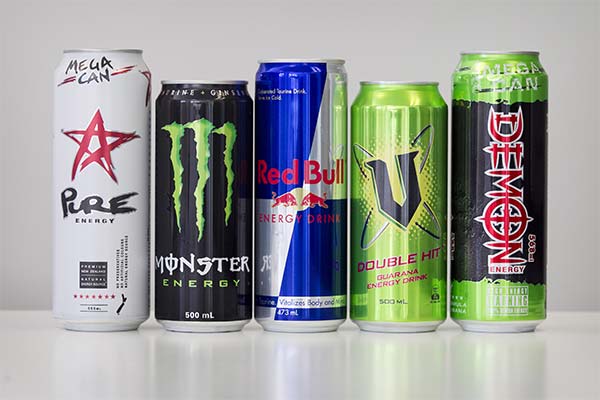
Energy drinks have health benefits. For example, they help speed up your metabolism and prevent weight gain and obesity. When you take an energy drink, you should make sure you choose one that contains the right amount of caffeine and antioxidants. If you use it in moderation, as well as in the absence of any health problems, you can not worry about the harm of the drink. The main thing is not to mix energy drinks with alcohol and not to drink more than 1-2 bottles per day.
How much you can drink per day
According to various studies, it is safe for a healthy adult to consume as little as 400 milligrams of caffeine per day. Any higher amount can lead to a number of side effects. Based on this daily caffeine intake, you should limit your energy drink consumption to 1 or a maximum of 2 cans per day.
Can I Drink at Night and on an empty stomach
The amount of caffeine in these drinks can make it difficult to fall asleep, reducing overall sleep time. Energy drinks may contain two to three times more caffeine than carbonated drinks or coffee.
Frequently Asked Questions
Can you drink energy drinks before you are 18 years old?
Between school and homework, extracurricular activities, part-time jobs and college preparations, most teenagers lead busy lives. With such a high workload, they become interested in energy drinks. But is the caffeine good for them?
One of the problems with energy drinks is that they replace healthier drinks that help keep teens hydrated. When kids get hooked on energy drinks, they start refusing water and don't sleep well at night, only to drive themselves even more.
Why teenagers should give up energy drinks:
- Abundance of sugar. Another big problem with energy drinks is the amount of sugar they contain. These drinks often contain even more than the recommended daily intake.
- Crazy caffeine. In addition to sugar, excessive caffeine can also be harmful to teens. Side effects of overconsumption include changes in heart rate, increased blood pressure, anxiety, sleep problems, digestive problems, headaches, and dehydration. Typically, energy drinks contain more caffeine than carbonated drinks and coffee.
Experts don't know for sure if caffeine has a different effect on teens than on adults, because most studies in this area have only been done on adults. However, the American Academy of Pediatrics takes the position that "energy drinks containing stimulants have no place in the diets of children and teens."
Can I Drink Energy Drinks Before Exercise
A drink with caffeine, in this case an energy drink, stimulates the nervous system. This stimulation will give a temporary boost of energy. With the right dosage, mental performance will also improve. Studies have shown that cognitive function can increase as a result of drinking energy drinks. It will allow you to do more in a short period of time. Studies have also shown that the right amount of caffeine before a workout can improve endurance for running, weight lifting, and muscle strength.
While caffeine can help, it should be consumed in moderation, as too much of it can cause adverse effects during and after a workout. But wouldn't you rather get a longer lasting energy boost than just a short burst? If so, look for a drink with natural caffeine rather than the usual synthetic energy drink.
Caffeine is a mild diuretic that can stimulate urges to urinate. It removes excess water from the body. However, it has no effect on overall hydration. There is no magic formula for determining how much water and sports drink you need to prevent dehydration during a workout. Everyone reacts a little differently to energy drinks. The American College of Sports Medicine recommendation for walkers and runners is to pre-hydrate (that is, be sure to be sufficiently hydrated before you even start exercising) and then drink during and after your workout to replenish water loss with sweat. Contrary to what many people think, thirst is not a reliable indicator of dehydration, especially during exercise.
Can you drink energy drinks while driving?
Drinking large amounts of caffeine causes people to fall into an altered state known as caffeine poisoning. Many characteristics of caffeine intoxication are similar to alcohol intoxication. Individuals who experience caffeine poisoning experience muscle twitching, increased irritability, and emotional turmoil. In addition, people who consume energy drinks often become more risk-averse and may become more distracted behind the wheel. This is a sure path to disaster when a distracted, irritable person gets behind the wheel of a car.
When a person uses energy drinks to compensate for the lack of a good night's sleep, it becomes much more dangerous. Caffeine cannot compensate for the mental and physical activity a person gets from a good night's rest.
The effects of caffeine in energy drinks can mask driver fatigue for a short time. However, when these energizing charges begin to wear off, drivers become increasingly fatigued, and their reaction time and ability to concentrate are severely affected.
Instead of using caffeinated drinks for artificial energy, people preparing for a long trip should sleep through the night. They should also take frequent breaks to warm up.
What to replace energy drinks
We all strive to increase peak performance. Fueling our bodies to reach our full potential is a given. But what's the best way to do it?
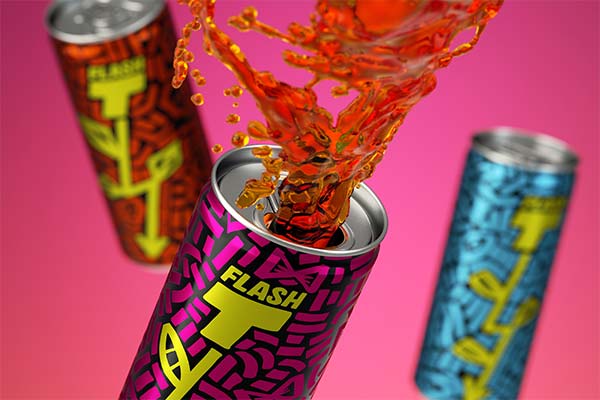
To get the same performance-enhancing benefits without the negative consequences, try these eight alternatives to energy drinks for healthier growth.
Protein
Move away from sugar. Researchers at Cambridge University found that protein is superior to glucose when it comes to stimulating the cells that keep us awake and fueling the calorie-burning fire. To increase alertness, keep your body working with amino acids found in lean sources of protein, such as eggs.
Cocoa
You probably don't know this, but chocolate milk has been called the perfect way to recover from a workout. But that's not all cocoa can do. Research from the University of Nottingham has found flavonoids in chocolate-they stimulate bioactive compounds in the brain, boosting energy.
Quercetin
Replace this antioxidant with caffeine to get rid of the nervousness the latter can provoke. According to a 2010 study at the University of South Carolina, quercetin leads to increased muscle performance. Add green juice with apples and kale to your diet for an extra dose of energy.
Glutamine
Who doesn't love a two-for-one deal? Adding glutamine to your diet can do more than boost energy. The amino acid also helps accelerate muscle growth. A study at Louisiana State University found that glutamine gives athletes the energy to train harder and longer after just six days of supplementation.
Carbohydrates
It turns out that good old-fashioned carbohydrate loading is still a great alternative for boosting energy. According to a study published in the International Journal of Nutritional Sciences and Nutrition, participants who ate mostly complex carbs showed increased alertness immediately after eating.
Magnesium
Mom was right: take your vitamins. A study by British scientists examined how the body works when running with low magnesium levels. They found that micronutrients make the body more energy-efficient, meaning that a body rich in magnesium uses less energy for the same amount of work.
Tea
Get the same rush without the nerve-wracking effects of coffee and energy drinks with a little tea.
Light Sleep
If nothing else works, try a nap. According to researchers at the University of Pennsylvania, a 10- to 20-minute nap can boost alertness. To get the maximum boost after a nap, have a cup of coffee before giving your eyes a rest. A short nap will satisfy your body's adenosine levels, a chemical that causes drowsiness. By the time you wake up, the caffeine has kicked in and there is less adenosine to contend with.
How to make an energy drink at home
Commercial energy drinks create a vicious cycle of negative effects on your body, so make your own energy drinks.
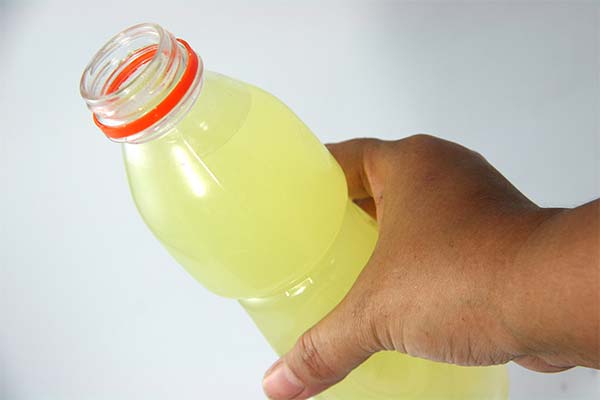
Citrus and coconut water
One very simple recipe that includes just four ingredients: 1/2 cup coconut water, 1/2 cup vegan milk, 1/2 ripe banana and 1/2 orange.
Coconut water and bananas are high in potassium, which helps keep cells healthy and boosts your energy. The fiber and antioxidants in oranges, one of the best superfoods on the market, are rich in vitamin C, a natural food that relieves any pain. Studies show that getting the right amount of vitamins helps prevent inflammatory arthritis and maintain joint health for osteoarthritis.
Electrolyte Energy Drink
Electrolytes are important because, in addition to other aspects of athletic performance, they help with cellular function and muscle contraction. When we sweat, electrolytes such as sodium, potassium, calcium and magnesium are lost in varying amounts.
A simple energy drink recipe includes: 1/4 cup fresh lime juice, 1/4 cup fresh lemon juice, 1/2 to 2 cups fresh water, 1/8 teaspoon sea salt and 2 tablespoons natural sugar or honey to taste. Stir everything in a blender and whisk until the honey dissolves.
Quick recipe for homemade energy drink
This drink is the most nutritious, free of caffeine and refined sugar. Ingredients: hot water, 1/2, 2 teaspoons honey (to taste), 2.5 fresh ginger root, 1/4 teaspoon ground cardamom and 1/4 teaspoon turmeric.
All of these products are very good for the human body. Ginger is used in traditional medicine to reduce inflammation because it contains components with anti-inflammatory properties. The root is as effective as ibuprofen in relieving pain in women with primary dysmenorrhea.
One of the active organic components of turmeric is curcumin. Researchers have linked this spice to many health benefits, including reducing inflammation and joint pain, cancer prevention, heart health benefits, and plaque prevention.
What happens when coffee is mixed with an energy drink
The direct effects of mixing coffee with an energy drink are unknown, as there are limited studies on the topic. However, according to the Mayo Clinic, the two products contain about the same amount of caffeine.
A recent study at Washington State University is one of the first comparisons of caffeine absorption. The study suggests that in terms of caffeine absorption and metabolism, coffee and energy are very similar. Unlike the combination of alcohol and caffeine, coffee and energy drinks seem to go well together.
However, too much caffeine is always a bad idea. According to the National Sleep Foundation, too much of it can disrupt natural sleep patterns and increase anxiety and irritability. The Mayo Clinic adds "anxiety, upset stomach, palpitations and muscle tremors" to the long list of symptoms.
Most students are familiar with tremors or insomnia from too many cups of coffee. Imagine doubling those symptoms. Of course, mixing coffee with an energy drink is not fatal. But remember: caffeine is a drug. Excess of it leads to addiction and addiction - and it's hard to control.
Interesting facts about the energy drink
Energy drinks have been consumed safely by millions around the world for decades, and yet there is still a lot of misinformation about them. Here are the most important facts about these drinks:
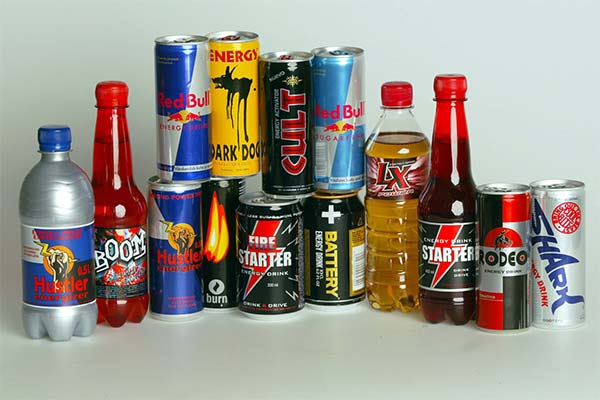
- The safety of energy drinks has been confirmed by scientific studies as well as by regulatory agencies around the world. In fact, the European Food Safety Authority confirmed the safety of energy drinks and their ingredients after extensive testing several years ago.
- Most energy drinks contain significantly less caffeine than coffee from a coffee shop of the same liter. Many contain about half that - a typical 500 ml energy drink contains about 160 mg of caffeine, while a typical 500 ml cup of coffee from a coffee shop contains about 330 mg of caffeine. A typical 250 ml energy drink contains 80 mg of caffeine.
- Energy drinks stimulate the nervous system. Energy drinks have been proven to stimulate the sympathetic nervous system by releasing adrenaline and noradrenaline, and so they temporarily improve our cognitive functions (memory, fluency, attention) and improve wakefulness.
«Important: All information on this site is provided for informational purposes only. purposes only. Please consult a health care professional before taking any recommendations. health care professionals before you use any of the recommendations. Neither the editors nor the authors shall be liable for any possible harm caused by materials."


